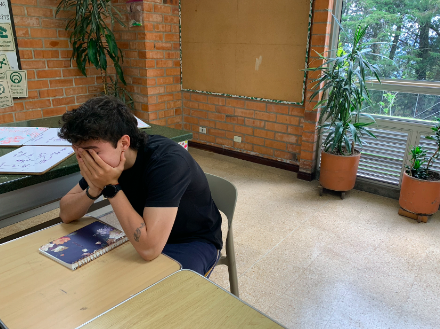World Conference on Women, United for Change
The committee of World Conference on Women (WCW) began on International Women’s day, March 8th of 2018. Subsequently, the delegations debated the violation of women rights such as “Female Genital Mutilation (FGM)” and “Child Marriage.” Those topics are highly controversial since some countries permit those practices while others, have laws that ban them.
Based on today’s discussions, women who have been mutilated and / or have married a man while the under the age of 18, suffer severe psychological and physical traumas. Worldwide. Millions of girls worldwide have suffered from these practices which cause a negative impact on their lives.
According to the World Health Organization, “It is estimated that more than 200 million girls and women alive today have undergone female genital mutilation in the countries where the practice is concentrated.”
As the debate proceeded, the delegation of Argentina proposed improved education to prevent the atrocious act of FGM.
The delegation of Argentina’s main goal is to break the cycle of FGM by keeping girls in school and educating women so they can empower themselves for a better future.
“Education is the key to enforce women rights and stand up for themselves,” Maria Jaramillo, delegate from Argentina, proposed.
The proposal from Argentina appeared to confuse the Saudi Arabian ambassador who questioned how education would prevent women from being attacked and becoming victims of FGM.
“Since there is much segregation in education, women will protest and think that their rights are as equally as important as men rights,” Leila Arbabi, Saudi Ambassador, said.
After other deñegates expressed their position, the delegate of France questioned the participation of the Saudi Arabia delegation in the committee due to their opposition to solutions to these problems.
“However they can do whatever they want in their own homes, it’s not Saudi Arabia’s business regarding what a man does to a woman,” Arbabi said.
The Saudi Ambassador asserted that their delegation wants to prevent men from thinking that women are inferior to them.
Some of the acts that Argentina has done to making FGM come to an end was the amount of help it has promoted to the ones that need it.
“Argentina has sent missionaries to Africa, Somalia, Ethiopia to help women who have suffered from FGM and it has been effective due to the amount of collaboration to the victims.” Maria Jaramillo, delegate of Argentina, said.
In Colombia, FGM is still visible and is one of the only countries in Latin America where they are done. Due to that, some of the actions that are taken into consideration are supporting campaigns that are against those events.
“Colombia sees education as a solution but also involving campaigns and protection of the citizens to stop FGM even though it is a cultural practice.” Sofia Duque, delegate of Colombia, said.
On the other hand, one of the things that were said that caused a lot of controversy within some of the delegations referred to that FGM should be considered as a way to”punish” women for their responsibility and rebellion.
“Women deserve to suffer because women are the ones who cause hate, they are the ones who are rebels inside cities. This is why women female genital mutilation is completely right and should be adopted in every single country of the world,” Salome Beyer, delegate of Afghanistan, said.
The practices of FGM are not tolerated in the majority of the countries present. Some had solutions that involved new laws.
“If women reinforce their right they will be getting an education and stand up for their rights. The education is important, but also the government should and needs to take action. If laws are clearly stated and supported, then FGM will come to an end.” Maria Jaramillo, delegate of Argentina, said.
























